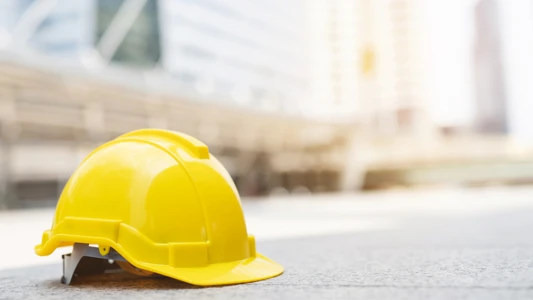There are lots of benefits to buying a new build home: your property will be brand new and freshly decorated and you may be able to choose some design elements too. But how does the buying a new build process work? We’ve put this article together to explain everything you need to know.
What is a new build property?
So first things first. What does the term ‘new build’ actually mean? It means it’s a home that’s brand new and has never been lived in.
Why buy a new build?
There are lots of reasons why people choose to buy a new build. These include:
- It’s brand new: This is the main reason why many people buy a new build property. You’ll step into a freshly decorated home with a new kitchen and bathrooms so you won’t need to worry about the hassle or expense of ripping out a dated bathroom suite or repainting the lounge.
- Low maintenance: When you buy a new build home it’s less likely to require the maintenance of an older property too, especially in the first few years.
- Lower energy bills: New builds are usually better insulated than period properties which in turn typically means lower energy bills.
- Designed around you: If you’re buying off-plan – so before the property has been built - you might be able to choose elements of the design.
- You may get help to buy: There are schemes designed to help you buy a home that are only available on new builds. These include the Help to Buy Equity Loan scheme and Deposit Unlock.
- Guarantees: New build homes come with a 10 year warranty, usually from NHBC, covering structural defects
- Smoother process: When you’re buying a new build home there is no upwards chain which can take away a major cause of stress.
Buying a new build? What's the process
So how does the new build buying process work? Here’s what you need to do.
1. Speak to a mortgage adviser
Your first step should be to speak to an expert mortgage adviser to find out how much you may be able to borrow. Bear in mind getting a mortgage on a new build can sometimes be harder than on an older property. This is where expert advice is vital because your mortgage adviser will be able to explain your options to you.
And it’s also a good idea to get a mortgage agreement in principle before you start house-hunting. This is a document from a lender confirming they will ‘in principle’ offer you a mortgage up to a certain amount.
2. Start house-hunting!
Now the really exciting part starts – it’s time to start visiting new build developments! You’ll be able to view the show home, or the marketing suite if the show home hasn’t been built yet. You may also be able to go into the property you’re interested in buying, depending on its build stage.
When you’re considering buying a property remember to do your research including on the local area but also on the developer’s track record too.
3. Make an offer
When you find your perfect property it’s time to make an offer. If your offer is accepted you’ll usually need to put down a reservation fee. This is typically taken off the purchase price when you complete. But it’s usually non-refundable if you pull out.
4. Apply for your mortgage and start the legal work
This is when you’ll need to start moving quickly because after you put down your reservation fee you'll usually only have 28 days to exchange. So appoint your conveyancer or solicitor to start work on the legal side without delay. And go back to your mortgage adviser to apply for your mortgage.
5. Wait to move in
Then you’ll have to wait until your property is ready to move into. When you exchanged contracts you would have seen the 'short-stop' date, this is when the developer expects to finish work. There would also have been a 'long-stop' date in the contract, this is the date the home has to be completed by. And if it’s not completed by this date, you’re entitled to rescind the contract and get your deposit back.
And make sure you have a snagging survey conducted on the property to highlight any problems with it. Ideally do this before you move in.
Buying a new build: What to watch out for
When you’re buying a new build there are some other things to look out for:
Is there a new build premium?
New build properties tend to be more expensive than older properties that are otherwise similar. This is because everything is new and hopefully a high spec. So it’s a good idea to look at what older properties are available in your budget too.
Buying a new build: Will your mortgage offer expire?
Another important thing to be aware of is that mortgage offers tend to be valid for six months and this could be an issue if you set your heart on a new build home has a projected completion date of beyond that or if there are any delays. So chat this through with your mortgage adviser at the outset.
Do you know what you’re getting?
If you’re buying off-plan you’ll be relying on plans and brochures to give you an idea of what your home will look like but it’s not always clear.
Buying a new build: How we can help
If you’re interested in buying a new build home we have a team here ready to help you so please get in touch with one of our expert mortgage advisers
Important information
Your home may be repossessed if you do not keep up repayments on your mortgage.
There may be a fee for mortgage advice. The actual amount you pay will depend upon your circumstances. The fee is up to 1%, but a typical fee is £99.

